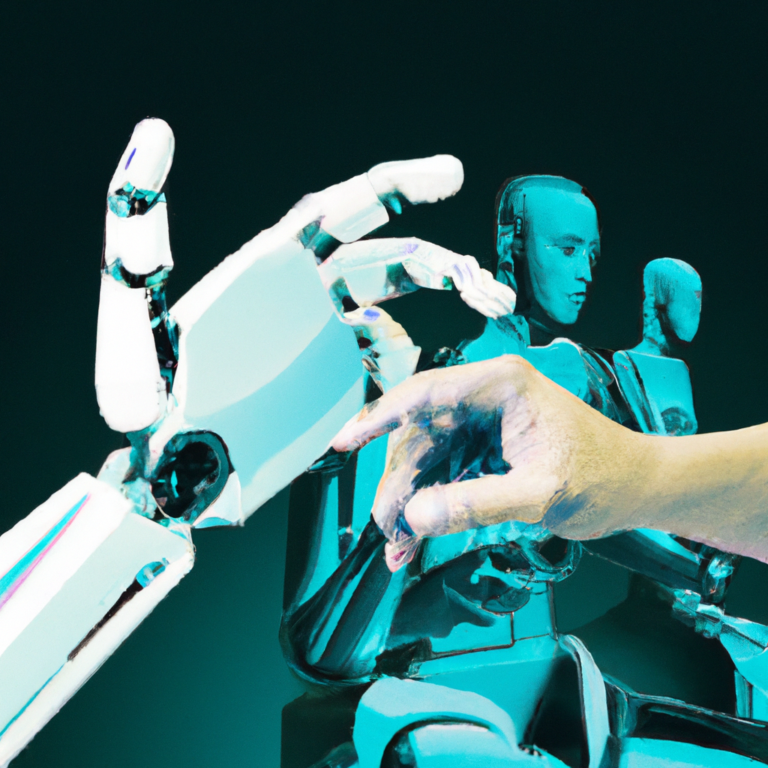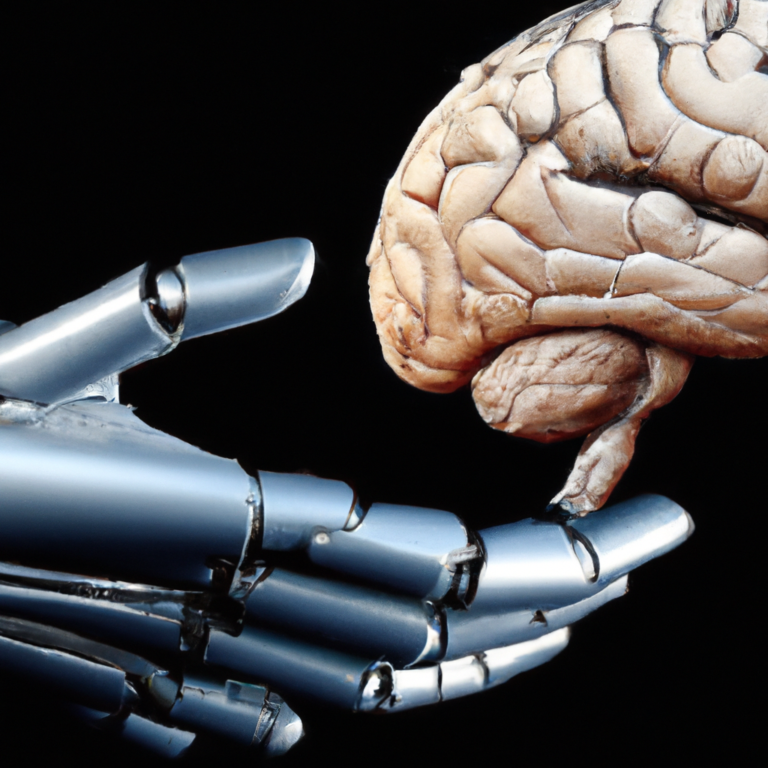Can We Use AI To Fight Climate Change?
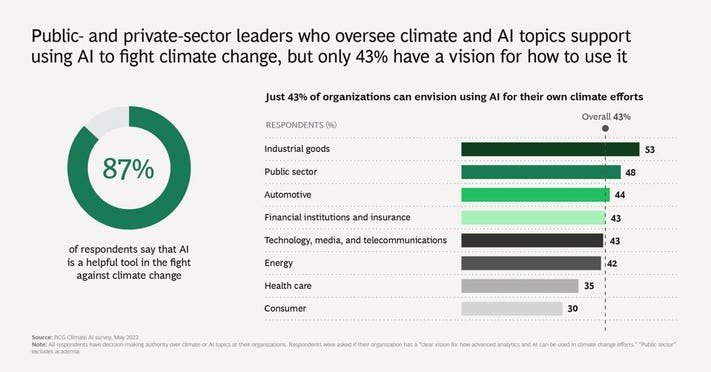
Imagine a world where technology, specifically artificial intelligence (AI), combats one of the biggest challenges we face today: climate change. Sound too good to be true? Well, researchers and scientists believe that AI holds immense potential in tackling this global crisis. By analyzing massive amounts of data, predicting and adapting to changing climate patterns, and optimizing resource management, AI could revolutionize our efforts to combat climate change. The question that arises now is not whether we can use AI to fight climate change, but rather how effectively we can harness its power for the benefit of our planet.

Understanding AI and Climate Change
What is AI?
Artificial Intelligence (AI) refers to the simulation of human intelligence in machines that are programmed to think, learn, and problem solve. It involves the development of computer systems capable of performing tasks that typically require human intelligence, such as visual perception, speech recognition, and decision-making. AI has the potential to revolutionize various industries, including climate change mitigation and adaptation, by harnessing its capabilities to address complex environmental challenges.
Defining Climate Change
Climate change refers to long-term shifts in weather patterns and global temperatures. It is primarily caused by human activities, such as the burning of fossil fuels and deforestation, resulting in greenhouse gas emissions that trap heat in the Earth’s atmosphere. These emissions contribute to the warming of the planet, leading to the melting of ice caps, rising sea levels, extreme weather events, and biodiversity loss. Addressing climate change is a pressing global concern that requires innovative solutions and collaborative efforts.
The Role of AI in Climate Change
Data Analysis and Prediction
One of the key roles AI plays in combating climate change is through data analysis and prediction. By analyzing vast amounts of historical and real-time data, AI algorithms can identify patterns and trends, providing valuable insights into climate change dynamics. This knowledge can assist in predicting future climate scenarios, enabling policymakers and organizations to make informed decisions and take proactive measures to mitigate the impacts of climate change.
Mitigating Energy Consumption
AI technologies can help reduce energy consumption by optimizing resource utilization and increasing energy efficiency. Machine learning algorithms can analyze energy usage patterns and identify areas of waste or inefficiencies in buildings, industries, and transportation systems. By providing real-time insights and recommendations, AI can help individuals and organizations make smarter energy consumption choices, thereby reducing greenhouse gas emissions and promoting sustainability.
Supporting Sustainable Agriculture
AI can also play a crucial role in supporting sustainable agriculture practices. By analyzing data on weather patterns, soil quality, and crop yields, AI-powered systems can help farmers optimize irrigation, fertilization, and pest control methods. This enables farmers to maximize crop production while minimizing the use of water, pesticides, and fertilizers, leading to more sustainable and eco-friendly agricultural practices.
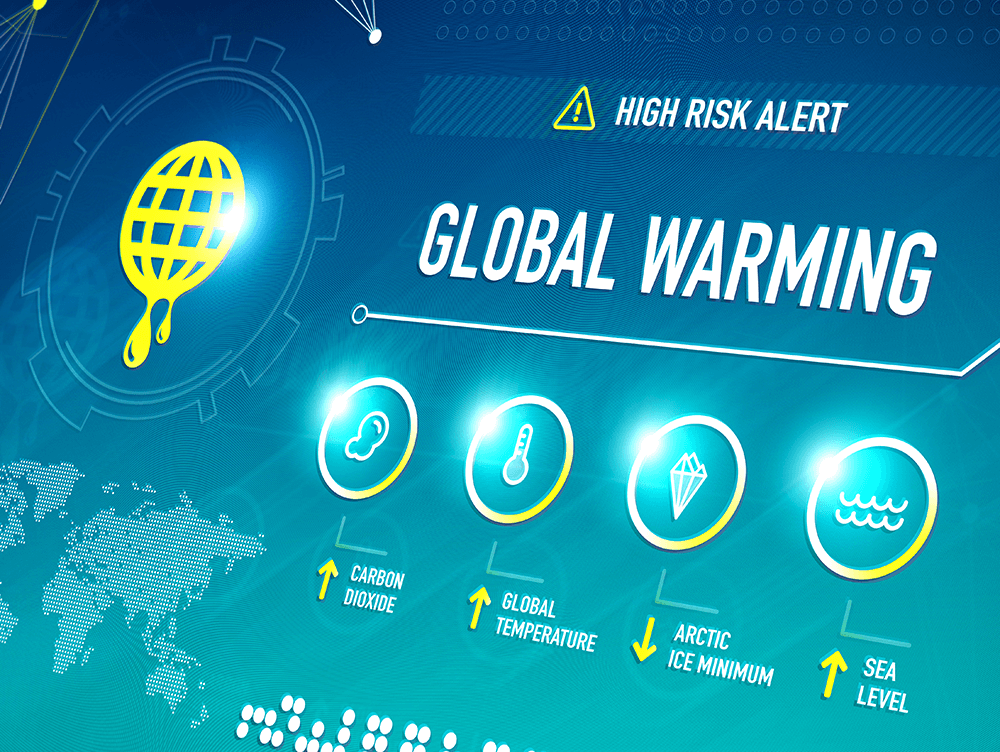
AI in Climate Monitoring
Improving Climate Models
AI can enhance climate models by improving their accuracy and reliability. By integrating AI algorithms into these models, scientists can better understand the complexities of climate systems and simulate different climate scenarios. This allows for more accurate predictions of future climate patterns, which are invaluable for developing effective climate change mitigation and adaptation strategies.
Enhancing Weather Forecasting
Advanced AI systems can significantly enhance weather forecasting capabilities by processing and analyzing vast amounts of meteorological data. By examining historical weather patterns and real-time data, AI algorithms can develop more accurate and timely weather predictions. This can help communities and authorities prepare for extreme weather events such as hurricanes, droughts, or floods, leading to improved disaster management and reduced human and economic losses.
Monitoring Emission Levels
AI technologies can be leveraged to monitor and analyze emission levels across various sectors. By using remote sensing technologies and machine learning algorithms, AI can track and quantify greenhouse gas emissions from power plants, factories, transportation, and other sources. This data can be used to identify areas of high emission intensity, enabling policymakers to implement targeted strategies and regulations for emissions reduction, ultimately contributing to global efforts in combating climate change.
AI in Renewable Energy
Optimizing Energy Grids
AI can optimize the functioning of energy grids by analyzing real-time data and predicting energy supply and demand patterns. By continuously monitoring factors such as weather conditions, electricity consumption, and renewable energy generation, AI systems can optimize the distribution of energy resources. This can lead to more efficient energy grids, reduced reliance on fossil fuels, and increased integration of renewable energy sources.
Advancing Solar Power Generation
AI can improve the efficiency and effectiveness of solar power generation. By analyzing various factors such as weather conditions, geographical location, and solar panel performance, AI algorithms can optimize the positioning and tracking of solar panels, maximizing energy production. Additionally, AI can enhance the maintenance and operation of solar power installations by detecting and predicting faults, improving their overall performance and longevity.
Improving Wind Farm Efficiency
AI can also enhance the efficiency of wind farms by optimizing turbine operations. By analyzing wind patterns, weather conditions, and turbine performance data, AI algorithms can predict and optimize turbine settings in real-time. This can result in increased energy generation, reduced maintenance costs, and improved overall performance of wind farm installations, contributing to the expansion of clean and renewable energy worldwide.
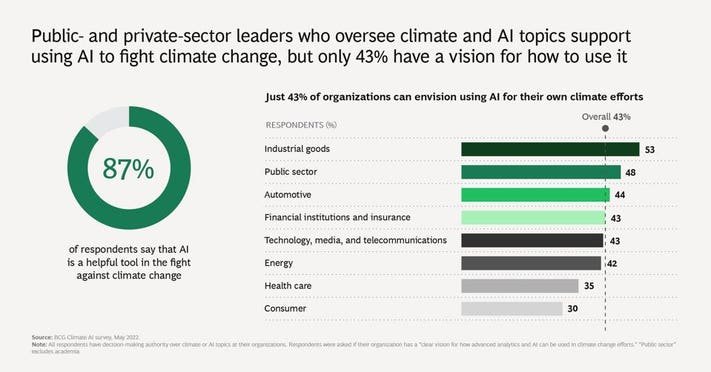
AI in Transportation and Urban Planning
Smart Traffic Management Systems
AI can revolutionize transportation systems by optimizing traffic flow and reducing congestion. By analyzing real-time traffic data, AI algorithms can predict and identify traffic patterns, adjust traffic signal timings, and optimize routing algorithms. This can lead to reduced travel time, improved fuel efficiency, and minimized emissions from vehicles, contributing to a more sustainable and efficient transportation network.
Optimized Public Transportation
AI can also optimize public transportation systems by predicting demand, optimizing routes, and improving scheduling. By analyzing historical data and real-time passenger information, AI-powered systems can provide personalized recommendations for commuters, leading to more efficient and reliable public transportation services. This can encourage a shift from private vehicles to public transport, reducing traffic congestion and carbon emissions.
Eco-friendly Urban Planning
AI can assist urban planners in designing eco-friendly cities and buildings. By analyzing data on energy consumption, carbon emissions, and urban infrastructure, AI algorithms can identify opportunities for energy efficiency, waste reduction, and sustainable design. This can help urban planners make informed decisions regarding transportation networks, building materials, and green spaces, ultimately creating cities that are more sustainable, livable, and resilient to climate change.
AI for Eco-conscious Consumers
Smart Home Energy Management
AI can enable eco-conscious consumers to manage their energy consumption more effectively. Smart home devices powered by AI can learn individual energy usage patterns and adjust settings accordingly to optimize energy efficiency. By connecting appliances, heating, and cooling systems, and lighting to intelligent systems, AI can help reduce energy waste, lower energy bills, and promote sustainable living at the individual level.
Personalized Sustainable Recommendations
Through AI-powered algorithms, eco-conscious consumers can receive personalized recommendations for sustainable lifestyle choices. By analyzing individual preferences, consumption patterns, and available environmental data, AI can suggest eco-friendly alternatives for products and services. This can empower consumers to make informed decisions that align with their values and contribute to a more sustainable future.
Reducing Food Waste
AI can play a significant role in reducing food waste, a major contributor to greenhouse gas emissions. By analyzing data on food spoilage, expiration dates, and consumption patterns, AI algorithms can provide recommendations for minimizing waste at various stages of the food supply chain. This can help individuals, retailers, and organizations to better manage inventory, improve distribution processes, and reduce food waste, ultimately reducing the environmental impact associated with food production and disposal.
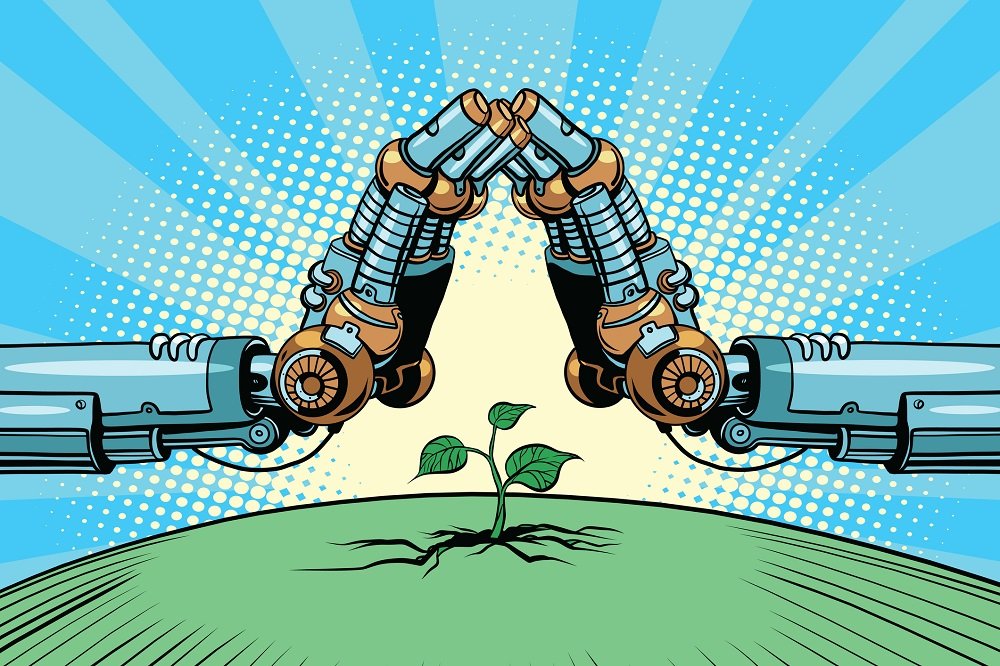
Challenges and Limitations of AI in Climate Change
Data Privacy and Accessibility
One of the challenges of using AI in climate change efforts is the issue of data privacy and accessibility. AI systems rely heavily on vast amounts of data, often collected from individuals and organizations. Ensuring the privacy and security of this data while making it accessible for analysis and modeling poses a significant challenge. Striking the right balance between data accessibility and privacy is crucial to harnessing the full potential of AI in addressing climate change.
Ethical Concerns
The use of AI in climate change initiatives raises ethical concerns related to decision-making, accountability, and bias. AI algorithms are only as good as the data they are trained on, and if this data contains biases, it can perpetuate and amplify existing inequalities. It is essential to consider the ethical implications of AI algorithms, ensuring fairness, transparency, and accountability in their development and implementation.
Reliance on Technology
While AI holds great promise in combating climate change, there is a risk of over-reliance on technology. It is essential to recognize that AI is a tool and not a magic solution. Climate change requires comprehensive and holistic approaches that involve societal, cultural, and systemic changes. AI should be seen as a complement to these efforts rather than a standalone solution.
Collaboration and Policy Development
Public-Private Partnerships
Addressing climate change effectively requires collaboration between governments, businesses, and academia. Public-private partnerships can play a pivotal role in leveraging AI technologies for climate change mitigation and adaptation. By pooling resources, expertise, and data, these partnerships can foster innovation, enhance knowledge sharing, and expedite the development and implementation of AI-driven climate solutions.
Global AI Climate Initiatives
Several global initiatives are promoting the use of AI in climate change mitigation and adaptation. Organizations such as the United Nations and World Bank have launched programs to harness AI technologies for sustainable development goals. These initiatives aim to facilitate international cooperation, knowledge exchange, and capacity building, enabling countries to leverage AI in their climate change strategies effectively.
Regulatory Frameworks
To maximize the potential of AI in addressing climate change, regulatory frameworks must be established to ensure ethical and responsible use of AI technologies. Governments and international organizations need to develop guidelines and standards that promote transparency, fairness, and accountability in the development and deployment of AI systems. Such frameworks can foster trust, facilitate collaboration, and ensure that AI is used as a force for positive change.
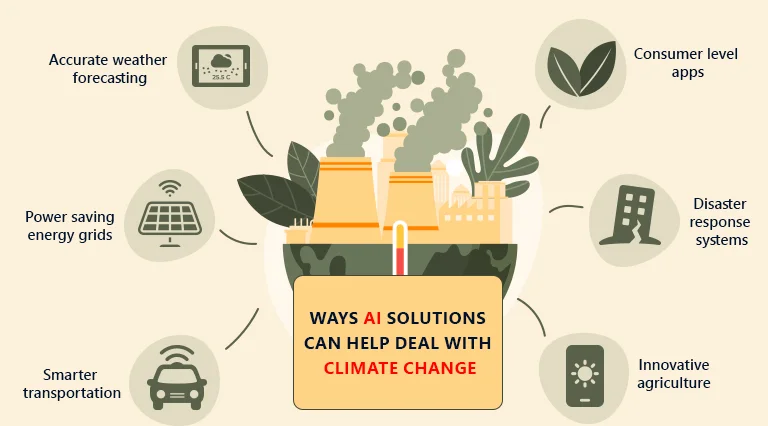
The Future of AI and Climate Change
Emerging Technologies
The future of AI in climate change mitigation and adaptation holds great promise with the emergence of new technologies. Machine learning, deep learning, and natural language processing are continually evolving, allowing AI systems to process and analyze data at unprecedented scales. Additionally, the integration of AI with other emerging technologies such as the Internet of Things and big data analytics can unlock new possibilities for addressing climate change challenges more effectively.
Advancing Sustainable Solutions
As AI technology advances, its applications in climate change are expected to expand further. AI can contribute to the development of innovative and sustainable solutions across various sectors, such as energy, agriculture, transportation, and urban planning. By continuously improving predictions, optimizing resource utilization, and promoting behavioral change, AI can support the transition to a more sustainable and resilient future.
Adapting to a Changing World
AI can also play a crucial role in adapting to the impacts of climate change. By continuously monitoring and analyzing data, AI systems can provide early warnings and adaptive strategies for communities at risk. AI-supported decision-making can help governments and organizations develop climate-resilient infrastructure, implement disaster management strategies, and facilitate community engagement. This adaptive capacity of AI will become increasingly critical as the world faces the challenges posed by a changing climate.
Conclusion
In conclusion, AI has the potential to be a powerful tool in the fight against climate change. From data analysis and prediction to renewable energy optimization and sustainable urban planning, AI can contribute to developing innovative and effective solutions. However, it is crucial to address challenges such as data privacy, ethical concerns, and the risk of over-reliance on technology. Collaboration between stakeholders, global initiatives, and regulatory frameworks are essential for harnessing the full potential of AI in combating climate change. With continued advancements and responsible use, AI can empower individuals, organizations, and governments to create a more sustainable and resilient future for generations to come.




